
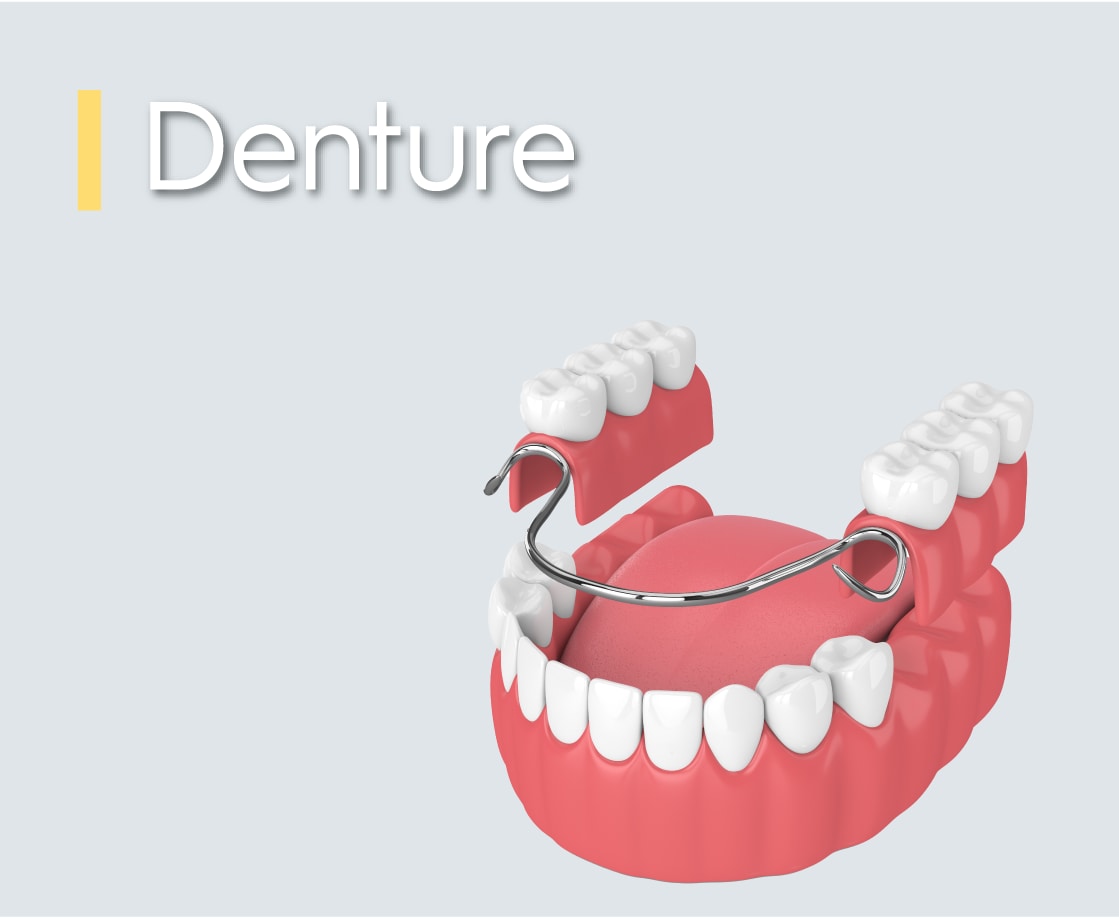
A denture is a tailor-made removable set with its base made of acrylic polymer, cobalt chrome or stainless steel and the teeth acrylic polymer or porcelain.
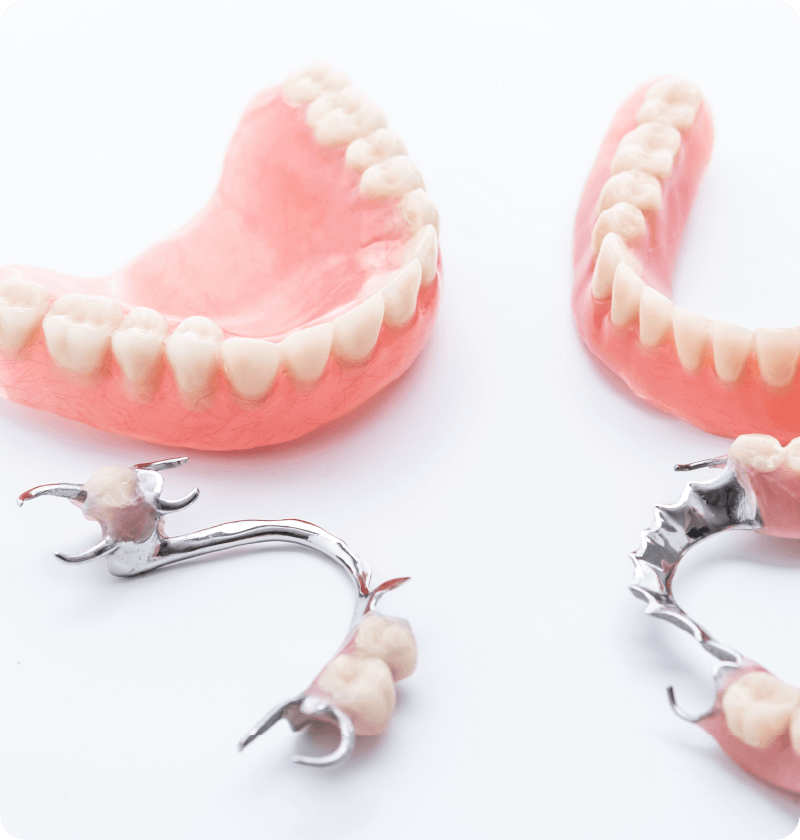
Features
- To restore chewing function
- To help articulation
- To restore a normal facial profile
- To correct abnormal bite
Types
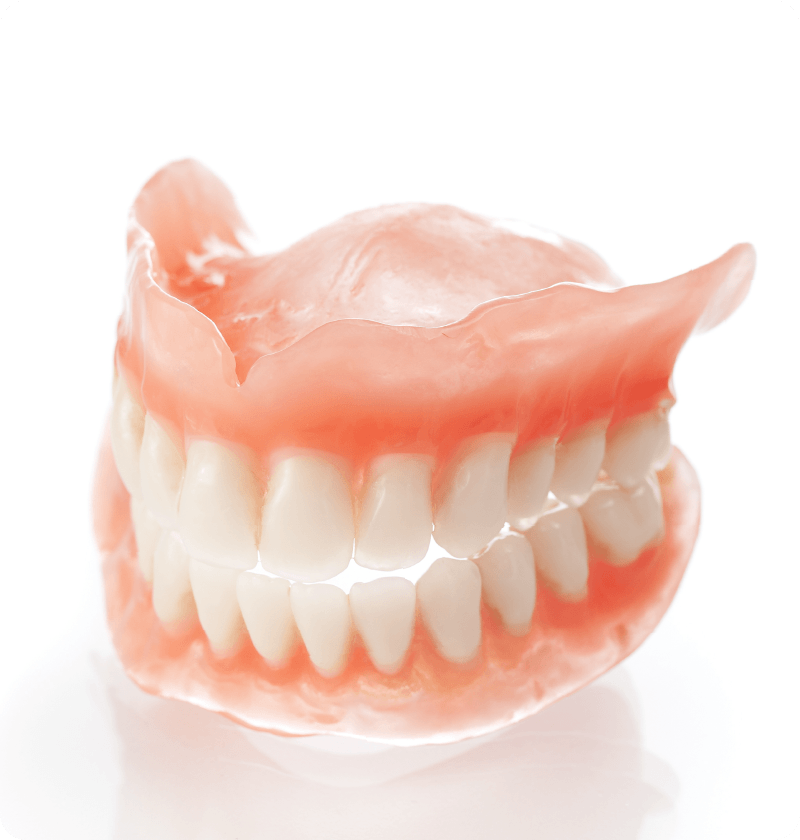
1. Full denture
- To replace all teeth in a dental arch
- A full denture is held in the dental arch by the oral musculature; hence the denture must fit the oral mucosa well
- If the jawbone has been dental implant, a partial denture can also be held by attachment devices to implants
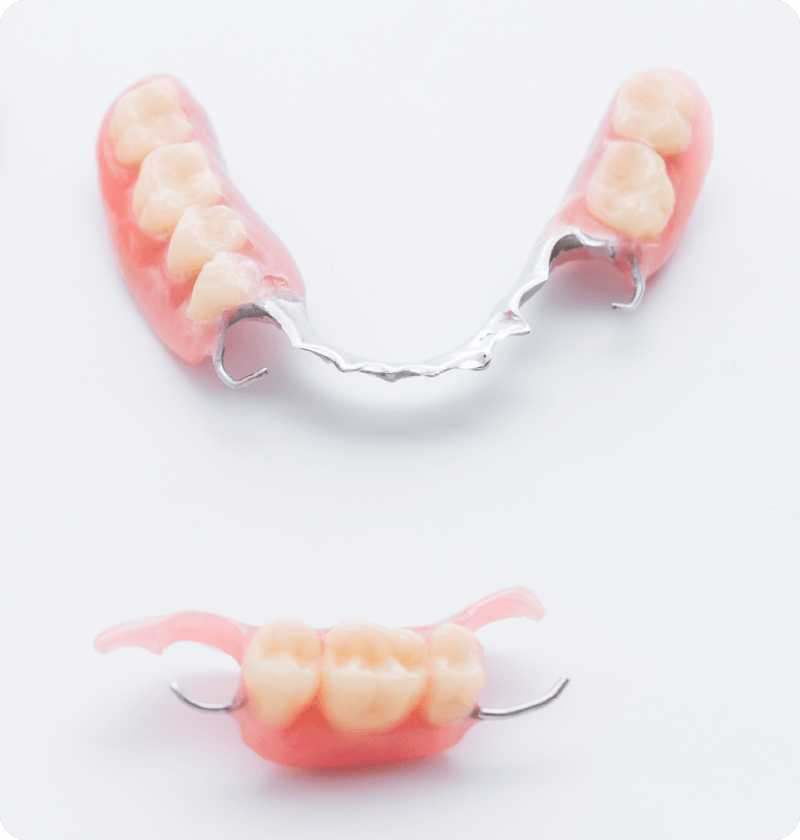
2. Partial denture
- To replace some missing teeth in a dental arch
- The denture is stabilized in the mouth by metal clasps that extend from the denture base, holding onto the neighbouring natural teeth
- If the jawbone has been implanted, a partial denture can also be held by attachment devices to implants
Procedures:
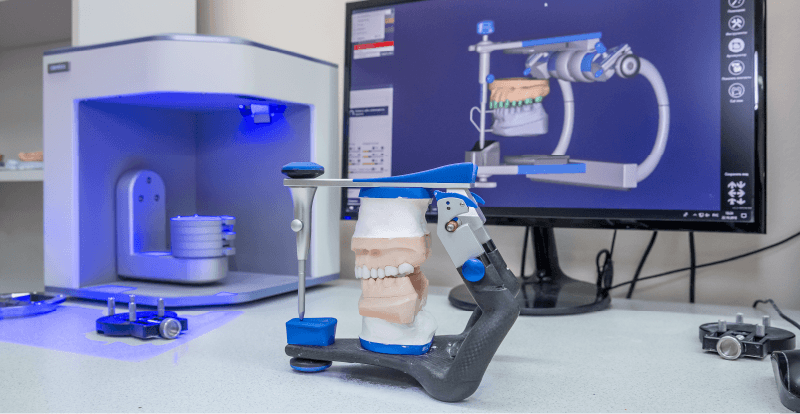
Take impressions of the upper and lower dental arches and record the bite
Fabricate the metallic frame of the denture in the dental laboratory, and put the false teeth onto the frame with wax
Try the denture frame in the patient's mouth and make adjustments
Process and finish the denture in the dental laboratory
Insert the finished denture in the patient's mouth and make adjustments
FAQ
- Initially it may be difficult to get used to a new denture, but you will soon be accustomed to it after wearing it for a period of time
- When you first start wearing dentures, your pronunciation may be temporarily affected, but it will return to normal once you get used to them
- A new denture may be uncomfortable to wear within the first 6 months. It is not unusual to require some adjustments to the new denture. Since oral conditions may change with time, a denture may gradually become loose and unfit. A regular dental check-up is thus necessary
- Please keep the teeth and dentures clean to prevent caries and gum disease
- Denture should be cleaned with tap / room temperature water after each meal
- Clean the denture in soap water with a soft bristle toothbrush, but toothpaste or corrosive cleaners should not be used
- Always clean and brush your teeth thoroughly before inserting the denture
- Never wear your denture(s) during sleep
- Always immerse the denture(s) in clean tap / room temperature water or denture cleanser solution when not in use. Never immerse it in hot water or corrosive cleaners
- Broken or cracked dentures should be returned to your dentist for repair
- Regular oral check-ups are necessary to ensure that the denture is working optimally

New dentures may feel awkward or uncomfortable for the first few weeks or even months. A bulky or loose feeling is not uncommon, while the muscles of your cheeks and tongue learn to hold your dentures in place. Eating and speaking with dentures might take a little practice. Excessive saliva flow, a feeling that the tongue does not have adequate room, and minor irritation or soreness are also not unusual. If you experience any unacceptable irritation, see your dentist for professional advice as soon as possible.



 Clinic Location
Clinic Location



